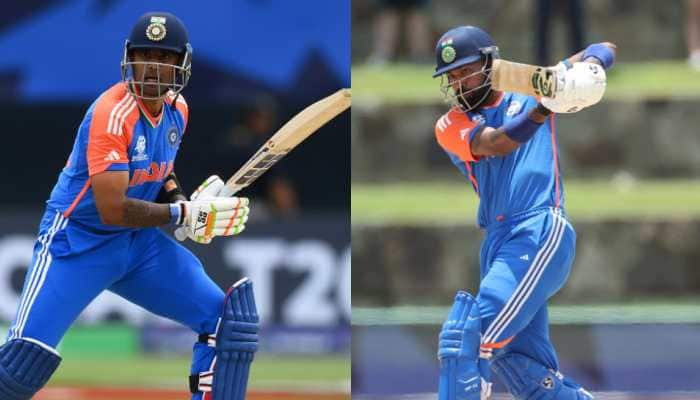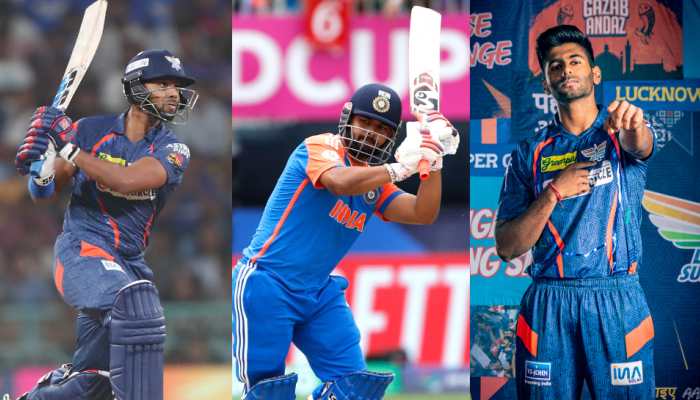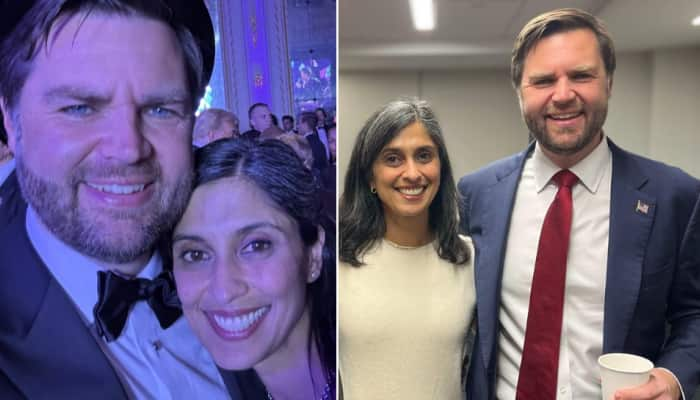Hockey World Cup 2023: 'Let the power-hungry officials first fight it out', How India won 1975 Men's WC despite dirty infights and corruption back home
How Ajitpal Singh-led Team India won their first hockey World Cup in 1975 is a story of tackling corruption, infights more than tackling opponents and scoring goals.
Trending Photos
) Source: Twitter
Source: Twitter With only a few months remaining for the 1975 hockey World Cup, Indian hockey was in a self-destructive mode already and it is an ironic statement of sorts to make knowing the government had just held a fresh election to steady the Indian Hockey Federation ship. The government wanted it rebuilt but there were forces which were hellbent at bringing the building down again. The IHF was divided into two factions for a long time even before the World Cup, and due to this infight, the hockey had suffered on the field. There were two stakeholders who wanted to own the IHF – MAM Ramaswamy and PN Sahni.
The Indian Olympic Association, led by Bhalindra Singh, had taken over the charge of hockey before the Asian Games held in Tehran in September of 1974 due to the same infight. Both of these factions had announced two different teams. Because there were two groups trying to run IHF, the International Hockey Federation could have thrown India out of the competition even before the Games had begun. Thankfully, IOA’s intervention helped the Indian cause and the team went to Tehran.
The Indian government decided to do something about the hockey mess. The intention was clean but the planning and process was again marred with politics.
1975 :: Grand Reception Given In Bombay to Hockey Team On Winning World Cup#HockeyWorldCup2023 pic.twitter.com/SnOGw8s4FX — indianhistorypics (@IndiaHistorypic) January 12, 2023
The great chaos in Indian hockey before hockey World Cup
In December of 1974, fresh elections took place, under the watchful eyes of Ministry of Education, to ascertain who would run the IHF. The election procedure was duly laid by former Chief Justice of India and supervised by a government official. At the end of the polls, Ramaswamy was elected the president and it seemed the mudslinging and chaos in Indian hockey would come to an end.
However, in Indian sports, the chaos and mudslinging go a long way together. They co-exist with the trophies in the cabinet. The fact that trophies exist despite this mess is a testimony to what it takes for players to achieve these feats on the field. For Indian athletes, the struggle to get to play is doubly. They are kept in such tangles to get mentally stronger, even if at the start that is not the pursuit of the administrators. Only the fittest can survive and represent India.
The politics in hockey before the 1975 World Cup was no different. The political tangle in the sport was not to get solved anytime soon.
In an interesting turn of events, what had happened is that the IOA was still not ready to pass on the baton to newly-elected IHF and now these two sides were at loggerheads days after the election. The Indian government remained a mere spectator in all of this.
The Indian hockey team, which should have got into a training camp by now, was the lone sufferer. Looking at this dismal state, the Punjab government invited the team to train at the Chandigarh University at their own expense to prepare for the World Cup which was not very far. With the IOA and IHF conflict going on, this was seen as a good way to sort things out. The hockey camp began while the administrators continued their ego battles.
Just 45 days, on 2nd February, before India was to play their first match against England, IOA dropped a bomb.
A month after the election had taken place, IOA suddenly had a suggestion to make to the Union Education Ministry. It submitted a memorandum to the ministry requesting it to appoint an officer of some 'judicial eminence' to look into the operations of the election and decide whether it was held as per rules or not. IOA, in its memorandum, had written about objections of some of the members of the IHF over irregularities in the procedure of the election.
HOCKEY WORLD CUP 2023 _
__ 13-29th
_ Bhubaneswar-Rourkela, Odisha
POOLS:
A- ________
B- __(Defending _)______
C- ________
D- __________________
Top team-> QF, Next 2-> Crossovers
__ at WC: 1975_, 1973_, 1971_
6th in 2018 (lost in QF)
Most successful teams- __(4x), ____(3x each) pic.twitter.com/QXpKoX4UHu — SPORTS ARENA__ (@SportsArena1234) January 12, 2023
Sahani argued that the elections were not fair. One reason for it was that former Chief Justice of India PB Gajendragadkar had not the presided over the election as told by the government earlier.
Gajendragadkar had readied to look after the affair of Indian hockey and fix the system at the request of the Education Ministry. However, after coming face-to-face with the reality of Indian hockey and its sad state of affairs, Gajendragadkar had no other option but to take his name back. He did not wish to be attending meetings where two groups came representing one association.
So yes, Sahni was right when he blamed the protocols were not followed. This one promise was broken. But where he was wrong is that he himself did not take part in the election, and lost it. He may have called it an unfair election later but the fact was that 29 hockey associations of the country voted in favour of his rival candidate. And even if he had contested, then merely 11 associations would have voted for him, out of which six had no voting rights.
Thanks to the election, a new IHF was formed and it had the sole right to run hockey and knowing the World Cup was nearing, it should have given the authority. But sadly, that did not happen and things only went north.
All of this happening in Indian hockey with the team scheduled to leave in less than three-week time for the World Cup.
Not to forget, the leaders of the two factions - Ramaswamy and Sahani - had both signed agreement that they were fine with the election procedure and they would abide by result of the election held under the auspices of an official appointed by the education ministry.
It was obvious that Sahani group had raised an issue again. And IOA still wanted to run hockey in the country. It was given an affiliation by the International Hockey Federation as well with president Rene Frank saying that it was only IOA which had the authority to send the team to Malaysia for the World Cup.
However, in a letter to press the next day on 3rd February, Bhalindra had told that he had no intention of holding on to hockey one minute more than necessary.
Indian team with PM Indira Gandhi after winning the 1975 Hockey World Cup pic.twitter.com/dC3GCLEyH8 — Gautam Roy (@gautamfootball) January 13, 2023
But to doubt an election held under the eyes of the government was in itself a big political move. It was a clear case of stepping over the line and not giving respect to a fair election.
In an article dated 4th February, eminent sports journalist R Sriman had blasted IOA for playing a dirty game, writing that it had taken the help of International Hockey Federation to 'flout the authority'.
This meant that India's own Olympics body was partnering with an international sports federation to snatch the rights from its own hockey body which had the backing of the government. IOA had the support of International Hockey Federation president Rene Frank and taking advantage of his one statement, Bhalindra had written to government asking the complete right over the team.
Reading different opinion articles reveal that it was, in fact, former president of Indian Hockey Federation Ashwini Kumar who was behind this fresh turmoil that was taking place, prior to the mega event.
Journalist Udayan Sharma, in his opinion piece in hindi magazine Dharmyug, blamed Ashwini for using IOA as a tool to continue calling shots in Indian hockey even after putting his papers. He wrote that Ashwini ensured Indian Hockey Federation came to an end after he left and his ploys have worked so far as he continues to have a say in Indian hockey now as the secretary of the Indian Olympic Association. In Sharma’s view, Sahani was a mere puppet whose thread was in the hands of Ashwini and that International Hockey Federation had also given recognised IOA and not the newly-elected IHF because Ashwin had an influence in the world governing body.
In a nutshell, the whole mess that was Indian hockey at that time was due to Ashwini Kumar and his ego, where the team, country and the sport were not his priority.
Legendary Dhyan Chand's son Ashok Kumar (Below) scored the winner in India's 2-1 triumph over Pakistan in the Final of 1975 Hockey World Cup. pic.twitter.com/mMSJr5tSiM — Gautam Roy (@gautamfootball) January 8, 2023
Frustration grew in India players
In Chandigarh, the frustration was growing in the players. The day to fly for the World Cup had come but the Indian team was still confined to their camp in Chandigarh. Ajitpal Singh and company were supposed to fly to Singapore from Mumbai on February 17 to play some warm-up games and from there they would fly to Malaysia for the World Cup, with their first game scheduled to take place on March 2. But the clearance had still not come as it was not yet decided who would sponsor the team for World Cup – IOA or the newly elected IHF.
On the same day, that is February 17, Bhalindra issued a fresh statement.
"The executive of the IOA discussed at length the IHF affairs. The IOA was granted adherent membership of the International Hockey Federation and made responsible to look after the affairs of men's hockey in the country till a legally constituted IHF is formed and recognised by the IOA.
"Charged with the responsibility the IOA elected a coach and trained the hockey team at Chandigarh. The team is now ready in all respects and is waiting for government clearance to leave for Kuala Lumpur where the first engagement is against England on March 2.
"Meanwhile the IOA is making all efforts to bring about a rapprochement in the two factions of the IHF and have requested MR MA Ramaswamy and MR PN Sahani to reach Delhi today. Mr Ramaswamy could not come and will be available to start from Madras after February 25."
From the above statement it is clear that IOA was still adamant at calling the shots in Indian hockey and it outrightly refused the government order. Bhalindra had taken a stern stance against the Indian government and this was being done less than two weeks before the first whistle in the hockey World Cup.
It was apparent that the players, who were toiling hard in Chandigarh for the World Cup, were upset over this and two days later, their frustrations took shape of a strongly-worded letter to the government.
In the letter, all the 16 players issued an ultimatum to the Union Education Ministry to give the clearance to the team for the World Cup in three days or they would not go at all.
It was a sort of a warning to the government that if the team did not participate in the World Cup, then the responsibility would not be of the players but the government and all the other bodies involved in making the great mess - the All India Council of Sports, the Indian Olympic Association and the two factions of the Indian Hockey Federation.
Never ever in Indian sport before a national team had come out criticising its own government and made a statement against the high-level sport bodies and federations. This team had written history even before having left for the World Cup.
Legendary Indian Hockey defender Michael Kindo had a key role to play in India's 1975 Hockey World Cup triumph. pic.twitter.com/AUrfULtGib — Gautam Roy (@gautamfootball) January 12, 2023
These words revealed the sad state of affairs in Indian hockey: "We are thoroughly disgusted with dirty politics and the fight for power in high level sports bodies, including the IHF which has ruined the national sport.
"We are left with no alternative. After all, we are also human and all this dirty politics and uncertainty do affect our morale and game. We have been practising here for more than seven hours a day for the last three months. But politics and infighting have dampened our spirits."
The letter did not stop there. The players went on to blame officials for putting their self-interests over the country and the sport and that selfishness has brought the sport to such low levels.
"What surprises us is the time chosen by the officials to sort out their differences. Whenever a team is ready to leave, different groups start taking stands. This amounts to blackmail and clearly show that the officials concerned are more worried about their personal benefits and power than the game of hockey."
The players were upset also for the reason that none of these officials had reached out to the players or visited the camp to attend to their grievances. They were for their "interests were always ignored'.
"Let the power-hungry officials first fight it out among themselves before a team is sent out for any international competition."
Some of the senior players in the team, whose names were not mentioned, also threatened to retire from the game if the mess was not cleared.
"It is better to go honorably rather than get humiliated like this. We can do nothing but sympathise with out new colleagues whose hockey career also seems to be in danger."
The anger in the team had grown to such an extent that calls were made to other athletes in the country to start a protest to counter the 'forces who are playing havoc with sports in India'.
The players, in that letter, had also written that this ultimatum was only the beginning of a long fight. And that if the present stalemate was not resolved, it would force them to take more drastic steps.
Manager of the team, the great Balbir Singh and coach GS Bodhi were ready to quit if it helped the team get clearance. Balbir, it is reported, had written a telegram to the AICS, underlining the growing frustration in the players and how important the warm-up matches against Holland and Spain were in Singapore.
Had the players not given that ultimatum, they might have actually missed the flight. Three days later, on February 21, the players were in Bombay meeting the education minister Nurul Hussain. The Indian government was going to take care of the travel expenses while the Punjab government had given the money for the foreign exchange required by the team members.
In making all of this happen, the Punjab government had a huge role to play.
Before boarding the flight, a relieved and captain Ajitpal Singh met the press. After having seen so much in the past three months in Indian hockey, the captain left the country with positive words, a promise that made the country hope again. He said, "It is going to be a do-or-die battle this time and all my colleagues are fit and determined to go all out and win the World Cup."
Finally, the Indian hockey team boarded the flight.
Stay informed on all the latest news, real-time breaking news updates, and follow all the important headlines in india news and world News on Zee News.
Live Tv







)
)
)
)
)
)
)
)
)
)
